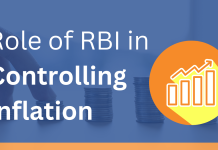Securities and Exchange Board of India (SEBI) is a regulatory body. It is tasked with the responsibility of regulating and developing the securities market in India. Furthermore, SEBI is also responsible for managing the foreign investments in India.
For this purpose, the Securities and Exchange Board of India introduced the SEBI (Foreign Portfolio Investors) Regulations, 2014. However, it is now replaced by the SEBI (Foreign Portfolio Investors) Regulations, 2019.
In this article, we will understand what the SEBI (Foreign Portfolio Investors) Regulations, 2019 is all about. Furthermore, we will also discuss the recent amendments.

Why were SEBI (Foreign Portfolio Investors) Regulations Introduced?
India being a developing nation, is one of the fastest growing investment destinations for global investors. With increased stability on the foreign investment front, international investors and businesses are exploring greater opportunities. To encourage foreign inflows to the secondary market has always received special attention as an efficient securities market plays a significant role in the growth of an economy.
The opening of Foreign Direct Investment (FDI) has led to the introduction of Foreign Portfolio Investment Regulations. This will make India a more attractive destination amongst international markets.
For the purpose of encouraging and simplifying foreign portfolio investment, SEBI introduced the SEBI (Foreign Portfolio Investors) Regulations, 2014.
Difference Between FDI, FPI and FII
| Criteria | FDI (Foreign Direct Investment) | FPI (Foreign Portfolio Investment) | FII (Foreign Institutional Investment) |
|---|---|---|---|
| Meaning | Foreign investment involving a lasting interest in an enterprise in another country. | Investment in financial assets such as stocks and bonds of a foreign company. | A subset of FPI, referring specifically to institutional investors like mutual funds, insurance companies, etc. |
| Form of Investment | Direct ownership or controlling interest in the company. | Indirect ownership without influencing or controlling the company’s management. | Indirect ownership, mainly involving financial institutions. |
| Percentage of Ownership | Usually a significant percentage, often with the aim of influencing management. | Generally a minority stake without the intention of influencing management. | Varies, but typically a minority stake. |
| Influence on Management | Intends to influence and actively participate in the management and operations. | Limited to financial interest, usually no intention to influence management. | Varies; may or may not seek to influence management. |
| Nature of Instruments | Equity shares, debentures, preference shares, etc. | Securities like stocks, bonds, and other financial instruments. | Similar to FPI, involving financial instruments. |
| Regulatory Body in India | Regulated by the Department for Promotion of Industry and Internal Trade (DPIIT). | Regulated by the Securities and Exchange Board of India (SEBI). | Regulated by SEBI. |
Meaning of FDI
For FDI, the investment is through capital instruments by a person resident outside India:
- in an unlisted company or,
- in 10% or more of the post issue paid-up equity capital on a fully diluted basis of a listed Indian company.
Meaning of FPI
In an FPI, the investment is through capital instruments of a listed Indian company by a person resident outside India which is less than 10% of
- the post issue paid-up equity capital on a fully diluted basis or,
- the paid up value of each series of capital instruments
Meaning of FII
- Foreign Institutional Investor (FII) was a category of investors, along with Sub-accounts of FII and Qualified Foreign Investors (QFI) initially used by the Government.
- However, the Government of India merged 3 investors’ classes of foreign investors, viz. “FII”, “Sub-accounts of FIIs” & “QFI” and created Foreign Portfolio Investor (FPI), under SEBI (Foreign Portfolio Investors) Regulations, 2014.
- Presently, in India, the term Foreign Portfolio Investor (FPI) refers to FIIs or their sub-accounts, or qualified foreign investors (QFIs).
Points to Note for FDI and FPI
- Irrespective of the percentage of investment, foreign investment in an unlisted Indian company will always be classified as FDI.
- On the other hand, for an FPI investment, once the investment is classified as FDI (on account of total holding increasing later), and if the FDI holding comes back to less than 10%, it will continue to be classified as FDI then –once an FDI, always an FDI.
- Since FPI investment is more short term in nature, to take advantage of varying returns between nations, it is referred to as hot money.
- FPI is regulated by SEBI (FPI) Regulations, 2014 and FDI is regulated by FEMA, 1999 under RBI.
Amendments in SEBI (Foreign Portfolio Investors) Regulations
SEBI (Foreign Portfolio Investors) Regulations, 2019
- Earlier the Foreign investors wanting to make investments in the Indian capital markets had to obtain an FPI license.
- This license was granted by the local custodian on behalf of the capital market regulator, i.e. SEBI with respect to the eligibility criteria, categories of registration, key investment conditions and restrictions, etc.
- Therefore, on September 23, 2019, for the purpose of further simplifying the FPI investments to India and to boost the FPI participation in the secondary market, SEBI issued revised FPI regulations as the SEBI (Foreign Portfolio Investors) Regulations, 2019. The new regulations became effective on the date of issue and replaced the SEBI (Foreign Portfolio Investors) Regulations, 2014.
- Moreover, the FPI Regulations, 2019 have to be read with Operating Guidelines for its effective implementation.
SEBI (Foreign Portfolio Investors) Regulations Amendment, (W.e.f: March, 2023)
Changes in FPI Regulations – Effective from March 15, 2023:
Amendments for Transparency:
- SEBI modified the FPI Regulations to enhance transparency in the ownership structure of Foreign Portfolio Investors (FPIs).
Broader SEBI Powers:
- SEBI gained broader powers to request additional information during the examination of FPI registration applications.
Stricter Reporting Timelines:
- FPIs must inform SEBI and the designated depository participant (DDP) within 7 working days about:
a. False or misleading information submitted previously.
b. Material changes in structure, ownership, control, or investor group.
c. Penalties, pending litigations, investigations, or findings by overseas regulators.
d. Any direct or indirect changes in the structure or ownership of FPI or its investor group.
Expanded Definition of ‘Material Change’:
- The Master Circular now includes changes like regulatory status, mergers, demergers, restructuring, and more under ‘material change’.
- FPIs must adhere to the prescribed timelines for reporting such changes.
Investor Group Details Maintenance:
- FPIs must ensure accurate details of their investor group are maintained with the DDP at all times.
- No specific timelines are mentioned, but routine submissions to DDPs are advised for compliance.
DDP Responsibilities:
- DDPs are also obligated to inform SEBI within 2 working days about false information, material changes, penalties, litigations, or regulatory actions against them.
Additional Information for Compliance:
- DDPs may require extra information to ensure compliance with the amended beneficial ownership threshold and FPI Regulations.
These changes aim to bring more transparency and accountability in the FPI registration process, ensuring accurate and timely reporting of relevant information.
Study with ixamBee for SEBI Grade A 2024 Exam
Online Mock Tests
Mock Tests play a crucial role in your preparation. Moreover, the mock tests will assist you in identifying your weak areas and judge your preparation before the exam. Therefore, we encourage you to take the SEBI Grade A Mock Tests. These mock tests are totally free.
Online Course
If you are preparing for the SEBI Grade A exam, ixamBee is providing the SEBI Grade A Online Course which can help you in kick-starting your exam preparation.
At ixamBee you can find free Online Test Series, GK updates in the form of BeePedia, as well as latest updates for Bank PO, Bank Clerk, SSC, RBI, NABARD, and Other Government Jobs.
Conclusion
To sum up, the purpose of introducing the SEBI (Foreign Portfolio Investors) Regulations and the Operating Guidelines was to simplify the processes for FPI including compliance requirements. This regulation and the amendments will encourage new foreign portfolio investment participants in India.














